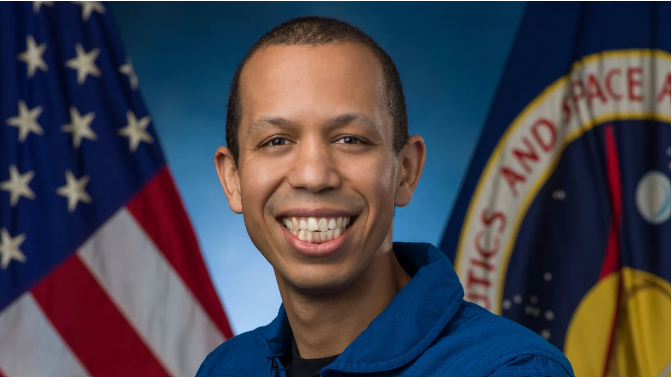Special Report: Emerging China, Engaging China
As the dawn breaks on the 21st Century, already the social andpolitical tides that shaped the world of the 20th Century moveacross the globe, repositioning political alignments, opening some borders whileclosing others. If the last one hundred years were the American Century, and,as some believe, the United States now stands at the apex of itspolitical, economic and military power, it can be argued that--as historydictates--a fall is sure to follow.
How and when is yet to be seen, but already two players wait in the wings,redefining their roles on the world stage and preparing for their close-ups.But while the European Union expands and forges its own identity in a slowbureaucratic manner, making sure not to ruffle feathers on this side of theAtlantic, China races to embrace its destiny as a global player to be reckonedwith. Nowhere is that more obvious than in the realm of space exploration.
For decades, the world's most populous nation lived in self-imposed isolation, butnow it moves to engage the world as an economic, cultural, and, inevitably, a militarypower. Just as the Cold War spawned the spacerace and put a man on the moon, much of today's quest for space is rooted in thedesire to gain--and keep--the military advantage, the "higher ground". As most Americanssaw during both Operation Enduring Freedom and Operation Iraqi Freedom, the useof space-based assets allowed U.S.-led coalition forces to coordinateeverything from food drops to waging fierce military offenses with deadlyprecision. Chinawas watching, too.
Though both nations are intertwined economically, with American investment helpingdrive Chinese business and the American consumer purchasing manufacturedproducts, such a partnership could easily be undone over the issue of Taiwaneseindependence, territorial and natural resource disputes, or the issue of North Korea'snuclear program. With a space program deeply rooted in its military, America remains skeptical and wary of China'sintentions. But if the Cold War taught us anything, it is that measuredresponses and tentative steps can open channels of communication andcooperation.
For this special report, we invited JeffreyLewis of the Center for International and Security Studies at theUniversity of Maryland, The Heritage Foundation's Larry M. Wortzel, Phillip C. Saunders, from the National Defense University'sInstitute of National Strategic Studies in Washington, D.C., and Vincent G. Sabathier,a visiting senior fellow at the Center for Strategic and International Studies,to examine China's emerging space prowess, its military applications and if--andhow--the United States should engage that country.
Anthony Duignan-Cabrera is the Editorial Director of Imaginova Corporation's Consumer Media Division. He is also the editor of Ad Astra Magazine. This Special Report first appeared in the Spring, 2005 edition of Ad Astra Magazine.

China's Future in Space: Implications for U.S. Security
Get the Space.com Newsletter
Breaking space news, the latest updates on rocket launches, skywatching events and more!
By Phillip C. Saunders
Beijing's space aspirations pose significant security concerns for Washington. Most of China's space programs have commercial or scientific purposes, but improved space technology could significantly improve Chinese military capabilities. China may also seek to offset U.S. military superiority by targeting U.S. space assets. READ
The Rules of Engagement: The Russia Model
By Dr. Larry M. Wortzel
It is tough to know the future, and it is impossible to know how Sino-American relations will develop. Thus, as with Russia, there is some utility for cooperative programs in space as long as American technology does not improve China's military capabilities. READ
Engage China, Engage the World
By Dr. Jeffrey Lewis
As access to space technology becomes more widely available, the international laws regarding space technology and its transfer continues to reflect the bipolar 1960s when the then-Soviet Union and the U.S. competed for space dominance. This needs to change, and soon. READ
By Vincent G. Sabathier
This article aims to describe the emerging space partnership between Europe and China, how the United States has-and can continue-to influence this partnership, and why China's inclusion in western space programs might be in the best interest of parties on both sides of the Atlantic. READ
Join our Space Forums to keep talking space on the latest missions, night sky and more! And if you have a news tip, correction or comment, let us know at: community@space.com.
"ADC" is a digital media executive and freelance journalist with ADC Strategy who previously contributed to Space.com in the arenas of human spaceflight, comets, and space exploration. As the Editorial Director of Consumer Media Imaginova Corp. he was responsible for editorial oversight of Space.com, LiveScience.com and the custom publishing of AdAstra magazine for the National Space Society. He's played a pivotal role in expanding the Consumer Media portfolio and developing custom editorial packages for major corporate sponsors. Under his watch, Space.com was awarded the 2003 Online Journalism Award for Breaking News by the Online News Association for its coverage of NASA's Columbia space shuttle disaster. His writings have most recently appeared in the Silicon Valley Business Journal.









